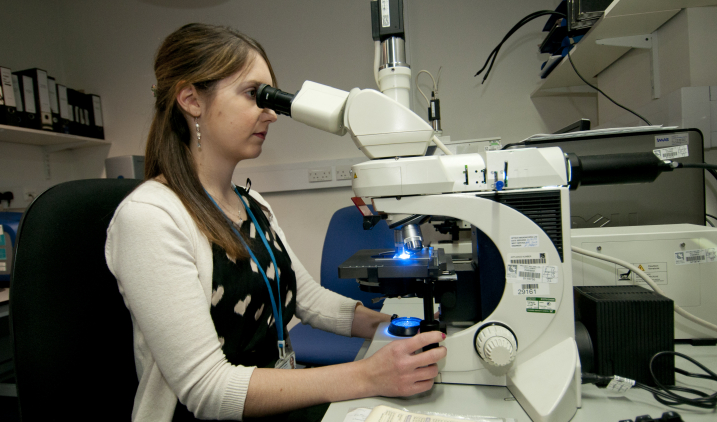Virology (healthcare scientist)
Virology is the study of viral infections, such as rubella, herpes, hepatitis and HIV.
If you work in this area of healthcare science, you’ll usually be part of a larger clinical microbiology service specialising in the identification and characterisation of viruses that cause infection.

Working life
Your investigations will involve highly specialised serological and molecular techniques, such as antigen, antibody detection, Polymerase Chain Reaction (PCR) and sequencing.
In some instances you may be directly involved in the screening of selected populations at risk from specific viral diseases.
Aside from dealing with patients, you might also investigate how infections have spread through the environment by taking a particular interest in (for example):
- the design and maintenance of operating theatres and other clinical areas
- food preparation and hygiene
- cleaning and waste disposal
- sterilisation and disinfection
Public Health England [1] is also an employer of healthcare science staff specialising in virology whose main aim is to protect the community (or any part of the community) against infectious diseases and other dangers to health. The work focuses on disease diagnosis, treatment and surveillance.
Want to learn more?
- Find out more about the entry requirements, skills and interests required to enter a career in virology [2].
- Find out more about the training you’ll receive for a career in virology [3].
Other roles that may interest you
- Biomedical science [19]
- Blood sciences [20]
- Cellular sciences [21]
- Infection sciences [22]
